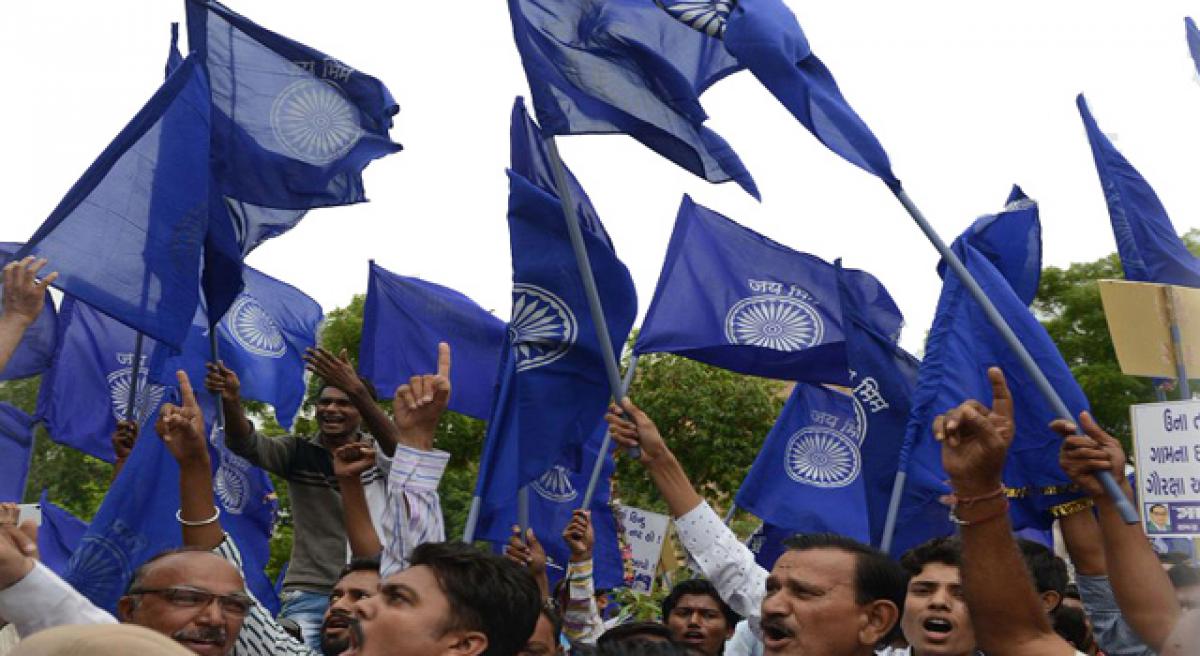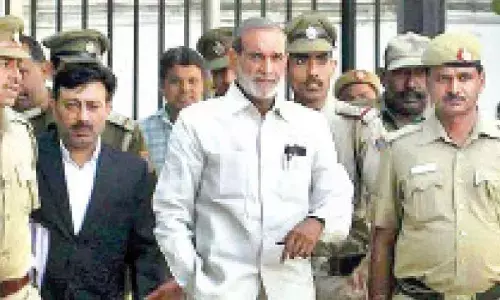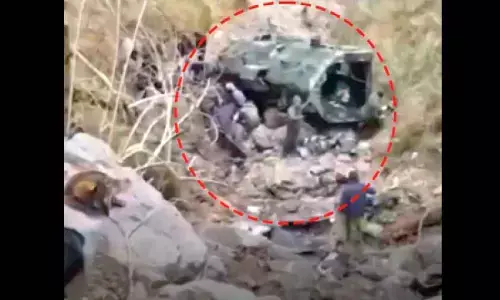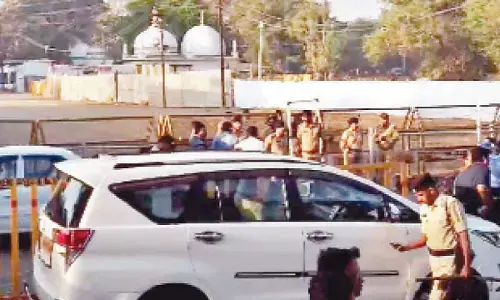Of Dalit struggles, triumphs

Just a couple of years ago the Dalit women of Chaubara Jagir village in Sonkatch block of Dewas district, Madhya Pradesh, led change from the front and compelled their local administration to consider their needs as second to none in the area. It was the struggle for a functional anganwadi centre that brought the women together and gave them the strength to stand up against prejudiced attitudes.
Just a couple of years ago the Dalit women of Chaubara Jagir village in Sonkatch block of Dewas district, Madhya Pradesh, led change from the front and compelled their local administration to consider their needs as second to none in the area. It was the struggle for a functional anganwadi centre that brought the women together and gave them the strength to stand up against prejudiced attitudes.
Officially an anganwadi centre is described as “a village centre that provides basic health care, nutrition education and supplementation, and also conducts pre-school activities for children less than six years”.
These days, Dalits are at the epicentre of protests and heated political debates. This demographic may still be largely marginalised and discriminated against, but the narrative of gloom is slowly moving towards one that holds hope for a better future
In other words, it is the very basis of mother and child care at the grassroots. What if, instead of one, there were two such centres in a village? Seems like a good thing, doesn’t it. The Dalit women of Chaubara Jagir would have begged to differ. For in their remote hamlet, the fully functioning anganwadi was for the upper caste women, while the one designated to serve them was in a pitiable condition.
Run from a broken down shed, their children were not just exposed to the elements but were also vulnerable to being attacked by stray animals. The monsoon season was particularly trying because the heavy rains and a leaking roof would result in frequent closure of the facility as well as the destruction of the already meagre supply of dry rations and nutritional supplements meant for distribution among pregnant and lactating women and children under six.
For years, they struggled with this problem as no one knew how to tackle it. Who does one go to demand repairs of an anganwadi? How does one ensure that the centre not only opens regularly but the anganwadi worker does her duty properly?
Since there were no answers to these questions they suffered in silence. “Things would have gone on like this forever had Jan Sahas not started working in our area,” remarks Reena Raikwar, a Dalit woman, who finally took matters into her own hands with assistance from the Dewas-based non-government organisation that empowers socially excluded Dalit, tribal and other communities in the district by protecting their rights and building the capacities.
In order to reach out to the community with relevant information and motivate them to claim their rightful entitlements under government welfare schemes Jan Sahas has established a resource centre at Sonkatch with support from the Fight Hunger First Initiative of Welthungerhilfe, Germany.
“When Jan Sahas volunteers came and told us that we could walk into the centre and explain our problem I gathered a few women from the village and went there. We told them that our children were being denied the care they deserved because the anganwadi centre was in a shambles. That’s when they explained to us how we could approach the senior district officials and apply for the construction of a new centre,” Raikwar recalls.
As a starting point, the Dalit families asked their sarpanch to take relevant action. He refused outright. This reaction, however, did not really surprise them as their community is used to being sidelined due to their low social status. So the next step was to draft an application to approach the Sonkatch Sub-Divisional Magistrate (SDM).
While the formal application was signed by all the Dalit women in the village, around 25 of them got together to meet the SDM. When they got their one-on-one with him they urged him to expedite the construction as their children were entitled to a safe anganwadi.
That one visit to the SDM’s office worked like magic as he immediately issued orders for building a new anganwadi. Construction began a few months later. Every year, the government introduces many welfare measures, such as low-cost housing, subsidised food grains, free education and livelihood security.
Under the Disabilities Act, the physically disabled, too, are entitled to various benefits. However, being largely illiterate or semi-literate most marginalised groups lack awareness and agency to avail of them. This is where the Jan Sahas resource centre is bringing about a real transformation. Volunteers there give information on all the different schemes launched and on legislation like Right to Information (RTI) Act, Public Service Guarantee Act, and so on.
In Mundalana, they took up the issue of availability of potable water in the Dalit neighbourhood. With only one hand pump in the ‘basti’, families were already reeling under a shortage when that too completely broke down. Despite repeated complaints and several meetings with the panchayat secretary, the man responsible for hand pump repairs, months passed with no solution in sight. The crisis severely affected the women, physically and mentally, as they spent hours on end trying to source water.
It was in those dire times that they came across the resource centre. As soon as they put forth their problem they were guided to the best and fastest way out. An application was drafted to be submitted to Sonkatch Jal Nigam’s Chief Executive Officer (CEO). Thereafter, a delegation called on the official to talk about the magnitude of difficulty they were facing. Without delay, the panchayat secretary was directed to do the needful. Such was the effect that within two days the hand pump was in working order.
Shares Manish Richi, a Dalit resident of Mundalana, “Once the volunteers showed us the way we took over. We have realised that we, too, have a right to basic services. Earlier, we used to feel powerless, but that’s not the case anymore. In future if we face a similar situation, we shall approach the right authority in time. We know how to go about it and have learnt how to draft applications.”
There have been other positive impacts of the resource centre as well – it has led to the widespread construction of toilets in several villages in the area and many who previously didn’t figure on the Below Poverty Line (BPL) list have got their names registered. Moreover, as per the provisions of the Forest Rights Act, the tribals have been able to stake their rightful claim over the forest and its other resources.
Of course, this is not to say that there has been no backlash from the powerful elements in the region. In fact, the resistance has been most acute in cases involving land grabs.
By: Shuriah Niazi










